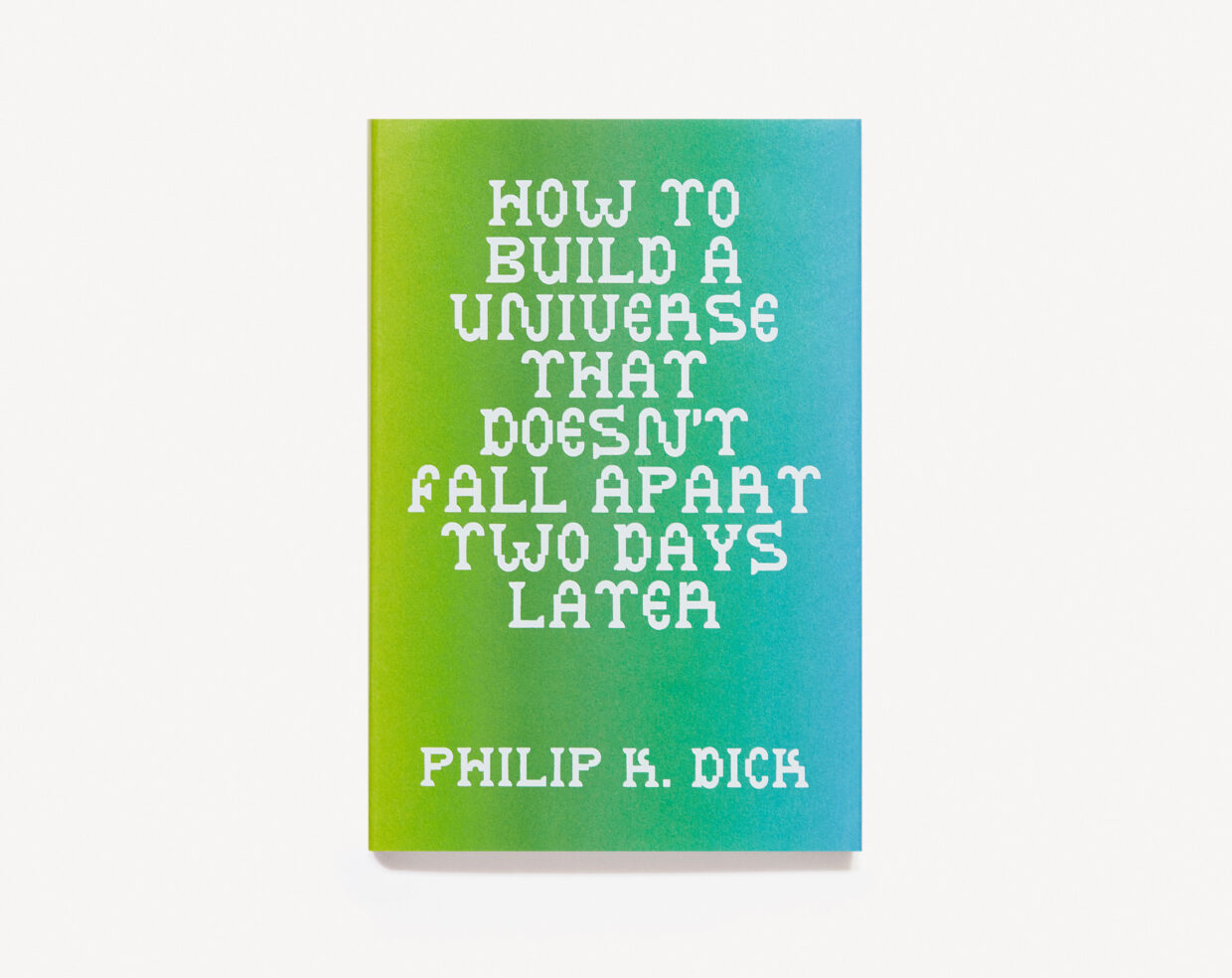If, at the moment, you find yourself looking around for guidance about, I don’t know, the nature of reality and how easy it is to manufacture it, you could do a lot worse than turning to Philip K. Dick. And as it happens, PKD’s cult classic 1978 essay, which was not actually given as a lecture at Disneyland, and in which he considers, among other things, the two perennially relevant and troubling questions that have defined his career (these being, as he puts it, “what is a human being?” and “what is reality?”) is the latest offering from the extremely cool literary subscription project isolarii. So why Dick, why now? Here’s what the editors told us:
Beside most aspects that define our modernity—AI, social media, increasingly sophisticated propaganda—can be heard the voice of Philip K. Dick, exclaiming with both amusement and concern: “I told you so.” Lauded by the critic and theorist Fredric Jameson as “the Shakespeare of science fiction,” Dick now stands as the best known science fiction writer of the twentieth century.
How to Build a Universe That Doesn’t Fall Apart Two Days Later, published in 1978 but begun around the time of Richard Nixon’s resignation, has achieved cult status for its exploration of manufactured realities and institutional power. In the book, Dick examines how media systems can create “pseudo-worlds” delivered directly into people’s minds. His analysis of how “spurious realities are manufactured by the media, by governments, by big corporations, by religious groups, political groups” strikes an eerily familiar chord in our hyper-digital age.
Eerie indeed. Get your copy here, and in the meantime, read an excerpt from Dick’s essay below:
The basic tool for the manipulation of reality is the manipulation of words. If you can control the meaning of words, you can control the people who must use the words. George Orwell made this clear in his novel 1984. But another way to control the minds of people is to control their perceptions. If you can get them to see the world as you do, they will think as you do. Comprehension follows perception. How do you get them to see the reality you see? After all, it is only one reality of many. Images are a basic constituent: pictures. This is why the power of TV to influence young minds is so staggeringly vast. Words and pictures are synchronized. The possibility of total control of the viewer exists, especially the young viewer. TV viewing is a kind of sleep-learning. An electroencephalogram (EEG) of a person watching TV shows that after about half an hour the brain decides that nothing is happening, and it goes into a hypnoidal twilight state, emitting alpha waves. This is because there is such little eye motion. In addition, much of the information is graphic and therefore passes into the right hemisphere of the brain, rather than being processed by the left, where the conscious personality is located. Recent experiments indicate that much of what we see on the TV screen is received on a subliminal basis. We only imagine that we consciously see what is there. The bulk of the messages elude our attention; literally, after a few hours of TV watching, we do not know what we have seen. Our memories are spurious, like our memories of dreams; the blanks are filled in retrospectively. And falsified. We have participated unknowingly in the creation of a spurious reality, and then we have obligingly fed it to ourselves. We have colluded in our own doom.
And—and I say this as a professional fiction writer—the producers, scriptwriters, and directors who create these video/ audio worlds do not know how much of their content is true. In other words, they are victims of their own product, along with us. Speaking for myself, I do not know how much of my writing is true, or which parts (if any) are true. This is a potentially lethal situation. We have fiction mimicking truth, and truth mimicking fiction. We have a dangerous overlap, a dangerous blur. And in all probability it is not deliberate. In fact, that is part of the problem. You cannot legislate an author into correctly labeling his product, like a can of pudding whose ingredients are listed on the label… you cannot compel him to declare what part is true and what isn’t if he himself does not know.

